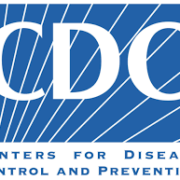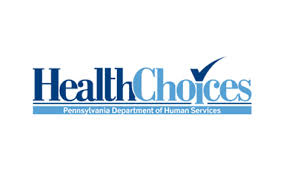Court Fires Warning Shot on PA Hospital Tax Exemptions
A state court ruling denying tax-exempt status to three Pennsylvania hospitals may signal a renewed look at hospitals’ tax-exempt status in the state.
In the ruling, a Chester County court found that three hospitals acquired from for-profit Community Health Systems by non-profit Tower Health and then turned into non-profit hospitals did not meet the generally employed criteria for non-profit status in Pennsylvania – even though just a week earlier a Montgomery County court approved a similar tax exemption for a fourth Community Health Systems hospital acquired by non-profit Tower.
 As reported by the Philadelphia Inquirer, Chester County court judge Jeffrey Sommer
As reported by the Philadelphia Inquirer, Chester County court judge Jeffrey Sommer
…found that the three hospitals did not qualify for property-tax exemption for three reasons: They do not provide enough free services, the hospitals’ businesses are too intertwined with doctors at for-profit practices, and they don’t operate free of private profit motives because of how they structure executive compensation.
In his decision, Judge Sommer also wrote that
It was very clear from the testimony of all witnesses that the health system was set up to be profitable and to reward executives at all levels when it was.
Tower Health has indicated that it will appeal the decision.
The judge also suggested that he expected his decision to encourage public officials to reconsider property tax exemptions and “to perhaps acknowledge that the existing tests, no matter where found, can no longer be applied to health care entities in the United States and particularly in Pennsylvania.”
Learn more about the court’s decision and its potential implications in the Philadelphia Inquirer article “Tower Health is denied property-tax exemption for three Chester County Hospitals.” Find the judge’s decision here.
 A new study found that doctors struggle to do business with Medicaid more than they do with other insurers. According to the study, doctors reported that 19 percent of the initial claims they submit for caring for Medicaid patients are not paid in full – more than twice as often as they experience that problem with Medicare and nearly four times more often than they do with commercial insurers. Coupled with Medicaid’s generally lower payments than Medicare and private insurance, many physicians simply choose not to care for Medicaid patients.
A new study found that doctors struggle to do business with Medicaid more than they do with other insurers. According to the study, doctors reported that 19 percent of the initial claims they submit for caring for Medicaid patients are not paid in full – more than twice as often as they experience that problem with Medicare and nearly four times more often than they do with commercial insurers. Coupled with Medicaid’s generally lower payments than Medicare and private insurance, many physicians simply choose not to care for Medicaid patients. Beginning today, SNAP is expanding its regular COVID-19 updates to encompass a broader scope of Pennsylvania state health policy endeavors. As efforts to address COVID-19 prove more effective and the state moves from focusing almost exclusively on the public health emergency back to its usual, much broader array of health policy concerns, we hope this update will be a useful resource on matters of importance to the hospital community. Please feel free to share this newsletter with others in your organization or to send us the email addresses of those you think might be interested and we will send it directly to them.
Beginning today, SNAP is expanding its regular COVID-19 updates to encompass a broader scope of Pennsylvania state health policy endeavors. As efforts to address COVID-19 prove more effective and the state moves from focusing almost exclusively on the public health emergency back to its usual, much broader array of health policy concerns, we hope this update will be a useful resource on matters of importance to the hospital community. Please feel free to share this newsletter with others in your organization or to send us the email addresses of those you think might be interested and we will send it directly to them. In the Legislature
In the Legislature COVID-19: By the Numbers
COVID-19: By the Numbers Pennsylvania Health Care Cost Containment Council
Pennsylvania Health Care Cost Containment Council According to a DHS news release, the RAHCs will “…lead efforts to address social determinants of health, reduce health disparities, and promote equity and value in health care” as part of “…a partnership between the Wolf Administration, Medicaid managed care organizations, hospitals and health systems, and community-based health and social service providers and organizations.”
According to a DHS news release, the RAHCs will “…lead efforts to address social determinants of health, reduce health disparities, and promote equity and value in health care” as part of “…a partnership between the Wolf Administration, Medicaid managed care organizations, hospitals and health systems, and community-based health and social service providers and organizations.” In addition, the DHS news release explains that the RAHC were established with five primary goals:
In addition, the DHS news release explains that the RAHC were established with five primary goals: RISE PA” – “RISE” is short for “Resource Information and Services Enterprise” – is, according to DHS, a “…collaborative effort between multiple state agencies, counties, and local non-profits and community organizations, health care, and social services providers” that will “…serve as an access point to search and obtain meaningful information to help Pennsylvanians find and access the services they need to achieve overall well-being and improve health outcomes” while serving as a “…care coordination system for providers…and a closed-loop referral system that will report on the outcome of referrals.”
RISE PA” – “RISE” is short for “Resource Information and Services Enterprise” – is, according to DHS, a “…collaborative effort between multiple state agencies, counties, and local non-profits and community organizations, health care, and social services providers” that will “…serve as an access point to search and obtain meaningful information to help Pennsylvanians find and access the services they need to achieve overall well-being and improve health outcomes” while serving as a “…care coordination system for providers…and a closed-loop referral system that will report on the outcome of referrals.” Department of State
Department of State Centers for Medicare & Medicaid Services
Centers for Medicare & Medicaid Services Centers for Disease Control and Prevention
Centers for Disease Control and Prevention The increase has been driven by rising COVID-19 pandemic-related unemployment that has cost many people their health insurance along with their jobs.
The increase has been driven by rising COVID-19 pandemic-related unemployment that has cost many people their health insurance along with their jobs. The report, “The 2020 State of Children’s Health Care in Pennsylvania: Unlocking Access to a Healthy Childhood,” includes the following major findings:
The report, “The 2020 State of Children’s Health Care in Pennsylvania: Unlocking Access to a Healthy Childhood,” includes the following major findings: That’s according to a new study from the Center for Children and Families at Georgetown University’s Health Policy Institute.
That’s according to a new study from the Center for Children and Families at Georgetown University’s Health Policy Institute.